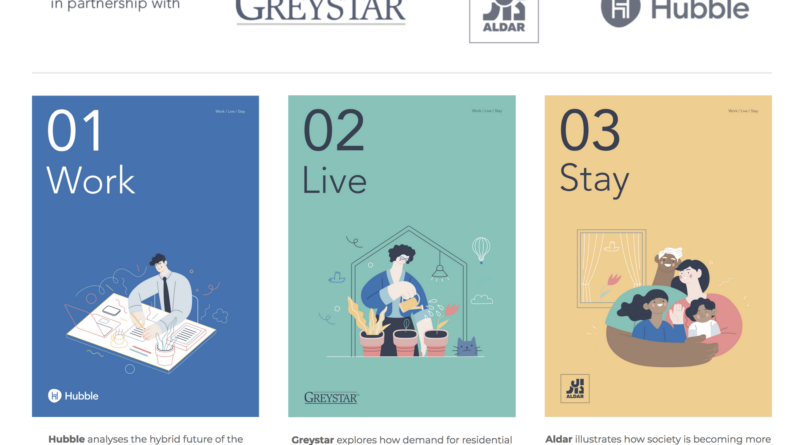UK: Real estate tech company Lavanda has teamed up with Greystar, Aldar Properties and Hubble to publish a white paper on trends in urban living.
Called The new normal: how demand for urban accommodation has changed, the 70-page study outlines how the changing way we work, live and travel is impacting demand for urban housing, and recommends how developers and operators of multifamily, coliving and purpose built student accommodation must adapt to better meet a permanent shift in demand.
Findings include that changing commuting habits have created new demand drivers for urban accommodation, meaning multifamily operators should consider offering short stay accommodation to city commuters, and that as new channels of rental demand continually emerge, an agile, scalable and futureproof distribution strategy is key to realising a portfolio’s potential.
Lawanda say this all points to a need for closer collaboration between tech, real estate and government in order to drive radical and rapid reform of the current regulatory landscape in order to ensure it aligns with the changing nature of rental demand.
Fred Lerche-Lerchenborg, CEO of Lavanda, said: “As the world rallies from the pandemic, there’s good reason to be optimistic about the future. People are rediscovering their confidence, and a degree of normality is returning. One thing, however, is very clear; the world cannot go back to the way it was. Much of the fabric of society has changed: the way we work, live and travel. So too has the glue that binds us as humans: the way we think, communicate and socialise. We’re now discovering a new normal.”
“This seismic shift has some of its most profound repercussions within real estate. The future of work, living and travel are the three pillars of demand for urban accommodation. In short, what we need from residential buildings – and how we interact with them – has changed. Lavanda has partnered with our friends Greystar, Aldar and Hubble to paint a global picture of how institutional real estate must now adapt to address a fundamental shift in demand – one that presents developers and operators with opportunities and risks in equal measure,” he added.
The report contains 12 key takeaways for multifamily, coliving and student accommodation operators:
• Adapt and cater to “work from anywhere”
Remote working policies allow professionals to indulge their wanderlust. Rental housing should seek to understand and cater to this as it becomes increasingly prized amongst young professional and other core renter demographics.
• Accommodate a new type of urban commuter
Changing commuting habits have created new demand drivers for urban accommodation. Multifamily operators should consider offering short stay accommodation to city commuters supported by a membership program
• Understand what amenities are really prized by residents
Developers must take a research-led approach to understanding the evolving needs of residents. We anticipate growing demand from professionals seeking accommodation that better supports work-life balance and long-term mental health.
• Embrace mixed-use buildings
Urban buildings must reassess the role they play within their local geography and adapt to offer a changing set of services and solutions to their local community. This prompts a fundamental rethink of the classic residential operating model.
• Innovate and solve for affordability
Despite new supply and increasing amounts of capital coming into the space, developers and operators are obliged to seek more innovative housing solutions in order to address the rising cost of living.
• Put flexibility at the heart of your community
As people become increasingly nomadic, allowing residents to seamlessly move between communities for variable lengths of stay is largely expected to be the next evolution in rental housing.
• Invest in digital-first rental experiences
Operators must invest in core technology to manage and offset the growing cost of attracting, engaging and retaining residents – specifically direct booking experiences and resident apps to enable convenience, self-service and instant gratification.
• Understand the challenge of placemaking
As rental demand becomes more fragmented and transient, developing sustainable communities that organically attract and retain through their authenticity is a growing challenge for operators.
• Embrace short and mid-term rentals
Accelerating demand from business and leisure travellers for flexible short and medium-term rental accommodation is driving new opportunities and a change in use of traditional residential buildings.
• Optimise for marketing and distribution
As new channels of rental demand continually emerge, an agile, scalable and futureproof distribution strategy is key to realising a portfolio’s potential.
• Embrace subletting and homesharing
Operators must look to a new generation of amenities and technologies designed to enable greater mobility and support increasingly nomadic lifestyles.
• Advocate for regulatory reform
Closer collaboration between tech, real estate and government is necessary to drive radical and rapid reform of the current regulatory landscape in order to ensure it aligns with the changing nature of rental demand.
Click here to download the white paper.








